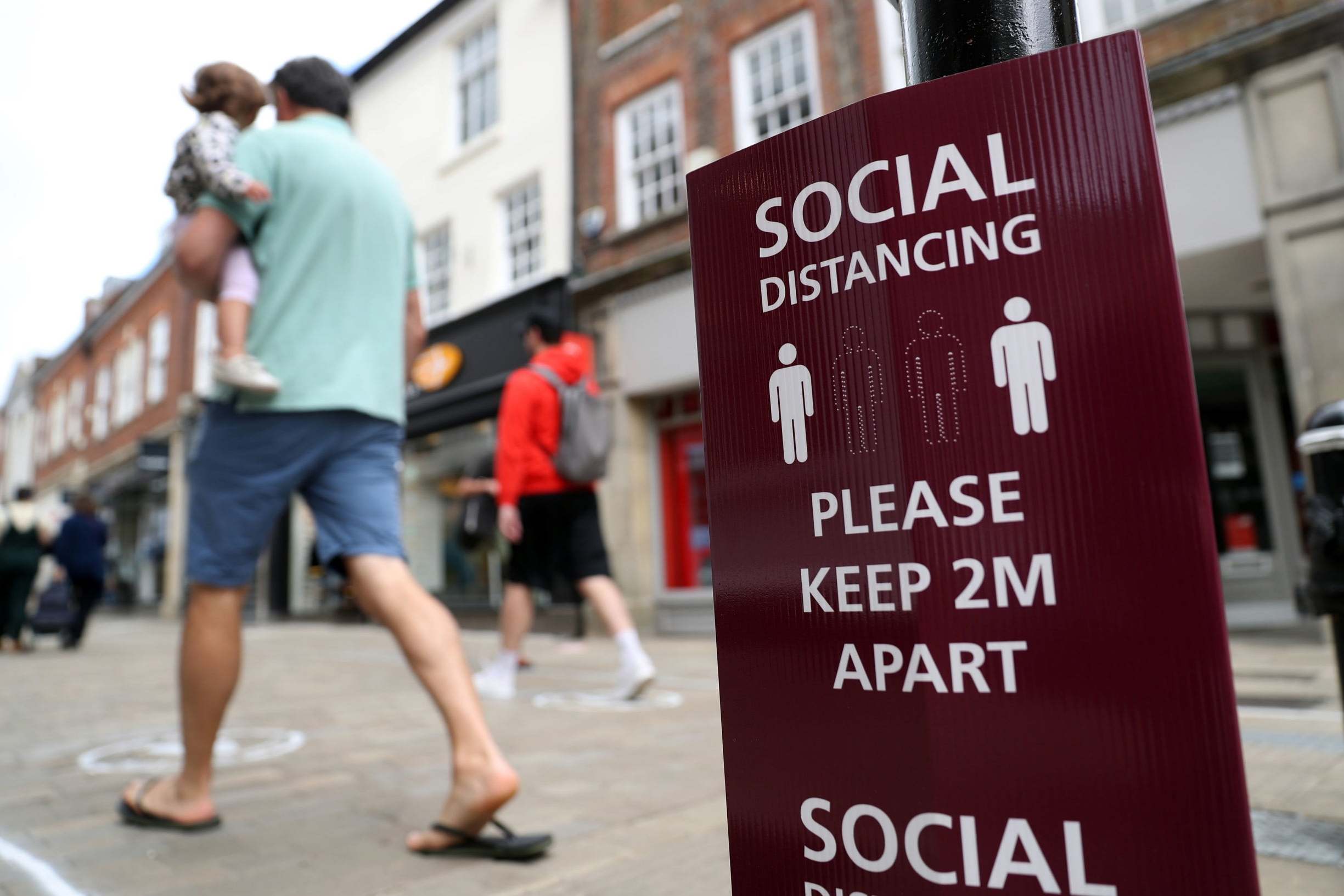A welcome return to a different kind of ‘normal’ life
Editorial: Now is the right time to relax social distancing rules to allow children to catch up on their education and to save people’s jobs and livelihoods

For the past two weeks, no more people have died in the UK than would be expected at this time of year. Given that it is unrealistic to expect to eliminate the coronavirus completely, this seems a reasonable definition of having the outbreak under control. Now, therefore, the priority must shift towards restoring the non-medical damage wrought by the virus.
The most urgent need is to try to make up some of the deficit in children’s education. Friday’s announcement of funding for catch-up measures was welcome, as is the signalling of a cut in the two-metre distancing guideline expected to be announced this week. Everyone is now agreed that all children should be able to go back to school in September, or August in Scotland and Northern Ireland; this must be delivered, but it should not distract from the provision of extra classes, for as many pupils as possible, during what would have been the summer holiday. Indeed, English schools should be thinking about starting the autumn term in August too.
Getting children back to school will also help many parents get back to work: that is not the purpose of getting schools back to something like normal, but it is a valuable side effect. Because restoring the economy to some kind of normal is also an urgent priority.
“The economy” is not some abstract soulless entity to be weighed against “saving lives”; it is lives. It is people’s jobs, their self-worth and their physical and mental health, as well as being the source of funds to pay for the healthcare that is directly saving lives right now.
So it is not frivolous to think that reopening pubs and restaurants is important. That is why we welcome the review of the two-metre rule. It was only ever a guideline, and it was based on incomplete and precautionary science. Other countries have operated with a one-metre guideline and have had better experiences of coronavirus – there are clearly other measures for controlling the virus that are more important.
This is not to say that life is going to go back to pre-Covid normal. Office lifts, shaking hands and the use of trains and buses are going to be different for a long time. Mask-wearing is going to be part of normal life. Contact tracing and local lockdowns are going to infringe liberties in ways that would have seemed unthinkable just four months ago. Pubs are going to be more sedate, with bouncers, possibly wearing masks and gloves, policing people’s personal spaces. Open-air drinking and dining may be the norm – at least until the cold and rain forces another adjustment.
One of the next difficult decisions is about the opening up of international travel. Again, a balance must be struck. It is hard to escape the conclusion that the 14-day quarantine for arrivals is a policy guided by the science of opinion polls rather than of epidemiology. There are so many exemptions from the policy that it seems designed to damage the tourist industry for little benefit in disease control. A policy of testing arrivals instead would probably be more effective.
All of the foregoing is subject to the need for vigilance against a second wave of infections, but there is no evidence of that happening anywhere in the world after an initial peak of deaths has been brought right down. In any case, now is the time to push at the boundaries of what might be possible: if there is a rise in infections, better to know now and deal with it than to risk a wave coinciding with the winter flu season.
Now is the time to start getting used to a new kind of normal life that allows children to catch up with their education and people’s jobs and livelihoods to be saved.
Join our commenting forum
Join thought-provoking conversations, follow other Independent readers and see their replies
Comments